Dorling Kindersley Limited
The Penguin Group
Published by the Dorling Kindersley Limited,
80 Strand, London WC2R 0RL
LONDON, NEW YORK,
MUNICH, MELBOURNE, DELHI
Dorling Kindersley Limited, Registered Offices: 80 Strand,
London WC2R 0RL, England
www.dk.com
First published in 1998 by Dorling Kindersley Limited. ISBN: 9780789424457
Copyright 1998 Dorling Kindersley
Text Copyright 1998 Tim Hindle
This Digital Edition published 2009. ISBN: 9780756662493
Digital conversion by DK Digital Content Services, London and DK Digital Media, Delhi.
No part of this publication may be reproduced, stored in a retrieval system, or transmitted in any form or by any means, electronic, mechanical, photocopying, recording, or otherwise, without the prior written permission of the copyright owner.
Introduction
Whether it is a prominent part of your job or an isolated task, interviewing candidates to fill a position can be a complex and time-consuming process that requires careful consideration and planning. Interviewing Skills will help you devise a strategy that eliminates many of the problems involved in recruiting the best candidate every time. Practical advice helps you put the strategy into action, giving you the confidence and skills to succeed in your initial preparation, the job interview itself, and the follow-up procedure afterward. This book provides further invaluable help in the form of 101 concise tips, which are scattered throughout, and a self-assessment exercise allowing you to chart and evaluate your improvement with each interview you hold. Use this vital information again and again as your interviewing skills develop.
Preparing for an Interview
A job interview rarely lasts longer than an hour, but its consequences may last for years. In order to identify the most suitable candidate for a vacancy, prepare well in advance.
Identifying Objectives
An interview is a formal method of exchanging information between people. The interviewer needs to be clear about the purpose of the exchange to ensure that the time is used to give and obtain information that is relevant and revealing.

Evaluate every vacancy before calling for interviews.
Defining the purpose
The recruitment of new employees is one of the most important tasks a manager will undertake. Meeting candidates face to face provides the best opportunity for gathering information about their skills and experience and, ultimately, matching the right person to the job and to the organization.
In preparing for interviews, remember that your purpose is not only to evaluate the candidates, but also to describe the job accurately so that they can assess whether it is the right one for them. You will also need to represent your organization in the best light possible to attract good-quality candidates.

Look for new blood rather than one of us.

Imagine the ideal candidate for a vacant job.
Assessing a vacancy
Before any employer can set out to find a suitable candidate for a job, it is important that they establish the skills and experience the job requires.
Start by referring to the existing job description. Consider whether the job has changed over time, with the introduction of new technology, for instance. Does it now require different skills? Ask questions about the previous employee to decide if there is anything new that can be brought to the job. Were they suited to the job? Is a similar mix of abilities required in a new employee?

Review all job descriptions for your team when a vacancy is created.
Assessing job relationships
An interviewer needs to assess how a job will relate to the roles of other employees. Where does it fit into the organizational hierarchy, and what will the role of the new job be within the existing team or department? To whom will the new employee report, and who will report to the new employee?
Bear in mind that there is usually room for some flexibility within an organizational structure. Consider, for instance, whether using new technology would allow a more junior employee to take on the responsibilities of a job previously done by a senior employee.
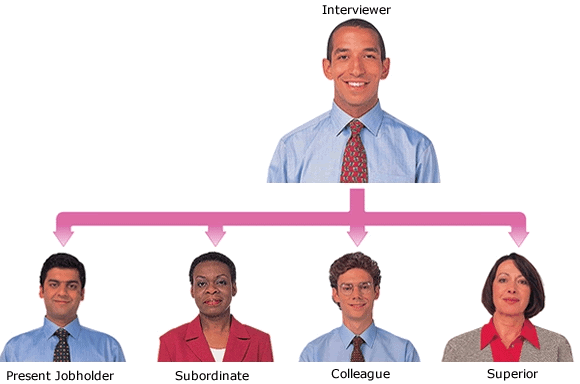
Gathering informationDiscuss the requirements of a job with the present jobholder and those who work in the same team or department. This may lead to a reallocation of responsibilities among all roles and a reappraisal of the skills needed in a new employee.
The interviewer obtains valuable information about the job from all those who work closely with the jobholder.
Evaluating a role
A new vacancy provides you with an opportunity to look closely at a job to evaluate its role within the company. Set aside time to identify specific changes that can be made to improve the jobs value to the organization.
Start with the aims of the company. Have there been any directional changes in its goals, and has the job adapted to meet them? Ask other departments what their expectations of the job have been and whether these have been fulfilled.
Consider the assumptions you have about the knowledge and skills you think the job needs. Can you introduce useful new knowledge or skills into the company through the new appointment? Think also about the communication skills that are needed to make the job effective: are closer relationships with clients or other departments needed?

Use a vacancy as an opportunity to reassess the reason for a job.

Check whether the qualifications required for a job have changed.
Points to remember
- Not all vacancies need to be filled.
- Changes in business occur so rapidly that the need for a job may exist only for a short time.
- The best source of information about a job may be the previous jobholder.
- A vacancy can be an opportunity to redefine the responsibilities of a job.
- Currently unfulfilled tasks and duties can be added to a job description.
- It may be possible to reallocate work among current employees.
- Sometimes two people sharing a job can be more productive than one.
Redefining a role
This case study looks at the way in which the role of librarian has been affected by information technology. Although the role was performed competently by the previous jobholder, a new applicant with updated skills shows how the scope of the job can be extended and improved to the benefit of the organization.



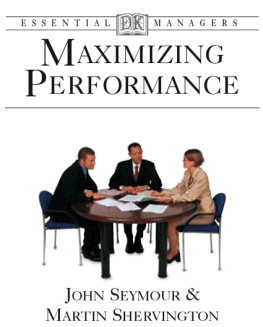

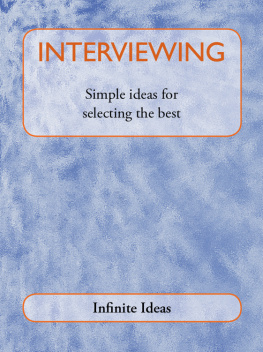

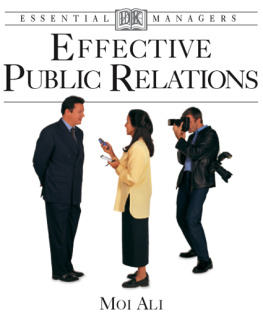


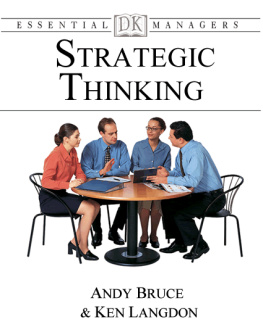



 Evaluate every vacancy before calling for interviews.
Evaluate every vacancy before calling for interviews.